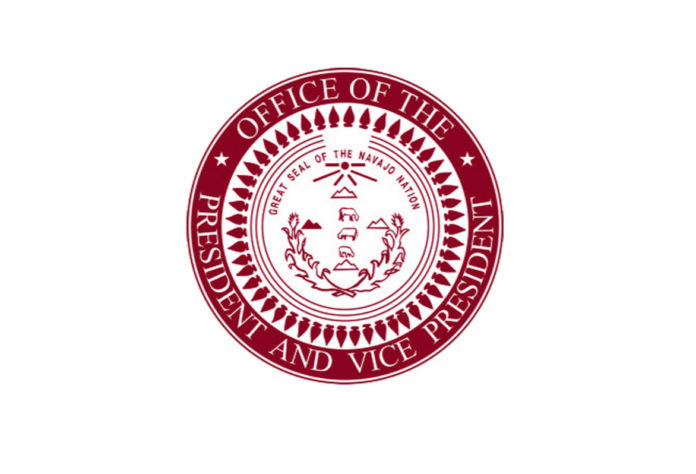WINDOW ROCK, AZ – Last month, Navajo Nation lawmakers voted down legislation that originally sought to provide approximately $1 billion in American Rescue Plan Act (ARPA) funding for water projects, electricity, broadband connectivity, housing, and other critical need-based infrastructure for communities and families across the Navajo Nation.
Since then, the Navajo Nation’s technical experts have worked together to develop a new bill, Legislation No. 0086-22, based on meetings with chapter officials, agency councils, council members, and proposals submitted through the Division of Community Development’s online portal. In 2021, Navajo Nation President Jonathan Nez and Division Directors met in person and virtually with numerous chapter officials and local leaders to receive their ARPA priorities. Each proposal submitted by the chapters was carefully reviewed to ensure compliance with the U.S. Treasury’s guidelines for the use of ARPA funding.
The Navajo Nation Council is scheduled to hold a special session on Friday, May 13th to consider the new bill. Legislation No. 0086-22, sponsored by Council Delegate Mark Freeland and several co-sponsors, proposes the following funding allocations:
- Water/wastewater development – $215 million
- Home electric connections – $96 million
- Housing for families and veterans – $165 million
- Broadband connectivity – $120 million
- Bathroom additions for homes – $150 million
- Local chapter priorities – $81 million
- Rural addressing – $30 million
- E911/public safety – $5 million
- Health care/mental health services – $79 million
- Cyber security – $5 million
- Economic development – $45 million
- ARPA Hardship Assistance – $120 million
Based on concerns expressed by certain council delegates and local leaders, the new legislation is offered as a compromise that incorporates $745,000 for each of the 110 chapters to address local priorities and initiatives – this amount is in addition to the infrastructure funds that would benefit residents and communities across the Navajo Nation. $120 million is also included in the new legislation to ensure that there is enough funding to cover the growing number of ARPA Hardship Assistance applicants and newly-enrolled members. The executive branch also reallocated $42 million of its administrative cost allocation that was approved last year, to fund more projects.
“This is a well-balanced legislation based on the infrastructure needs of our Nation and the support that is needed to recover from the COVID-19 pandemic,” said President Nez. “We are looking generations ahead to make our communities stronger and build our Nation. The plan also supports priorities at the local level that will benefit the most remote communities that are in great need of running water, electricity, and other basic necessities that larger communities already have. The plan will also provide funds for PPEs, isolation facilities, and other proactive measures in the event of future COVID-19 surges. Construction season is here and the cost of construction materials and supplies continues to escalate. The longer we delay the legislation, the more competition there will be to secure materials due to the global supply chain demands. It’s been one year since we received the federal funds and the Navajo people need the council’s support to begin moving forward on these initiatives before the federal deadline approaches in 2024.”
Recently, a separate bill, Legislation No. 0087-22, was also introduced that seeks to have the $1 billion in ARPA funds divided “equally” among the 24 council delegate regions to allocate at the discretion of each delegate. The legislation states that each “council delegate shall select Fiscal Recovery Fund eligible projects within their delegate region to be funded.” Each delegate would be allocated nearly $45 million each and given 90 days to submit supporting documents for each project selected by the delegate. This legislation is not supported by the Office of the President and Vice President.
“Legislation No. 0086-22 has safeguards in place and every project and initiative within the legislation has already been reviewed for compliance with federal guidelines by the technical experts and the Department of Justice,” said President Nez. “The legislation is ready to be implemented as soon as the council approves it with no amendments. The other legislation that is being proposed would place the decision-making entirely in the hands of council delegates and it will take at least another three months to have project listings in place. The executive branch has come to the table in many work sessions and meetings called by the council to provide information and answer questions. Each day that we hold off on implementing the ARPA funds is another day that Navajo families live without running water, electricity, and other basic services. The time is now to move forward with Legislation No. 0086-22.”














































